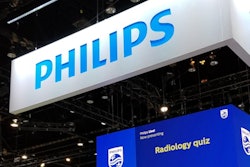Wednesday, December 1 | 9:30 a.m.-10:30 a.m. | SSIN06-5 | Room E350
Although a machine-learning algorithm can predict daily radiology study volume, it's still not ready to be used to optimize radiologist scheduling, according to this scientific presentation.In an effort to improve on the inefficient process of setting radiologist schedules, Dr. Akhil Dhamija from the University of Toledo College of Medicine and colleagues sought to determine if a machine-learning algorithm could be developed to predict study turnaround time based on the roster of radiologists scheduled to work on a given day at their large academic children's hospital with a large pediatric radiology fellowship program.
They first gathered data from 397,806 radiographs performed between 2017 and 2019 at Cincinnati Children's Hospital. After training a machine-learning algorithm using 33 months of the data and testing it on three months of data, the researchers found that turnaround time was only weakly correlated (R2 = ~ 0.4) with several variables. They also observed a noticeable increase in the rolling seven-day mean turnaround time from June to September each year, thought to be due to the onboarding of new fellows.
In addition, each day's mean turnaround time was only weakly correlated (R2 = 0.43) with the same day's mean turnaround time from the previous week. Ultimately, there was little correlation between the algorithm's predicted mean and median turnaround times with the actual turnaround times. On the bright side, the algorithm's prediction for daily study volume correlated strongly with the actual study volume (R2 = ~ 0.9).
The prediction forecasts for shift turnaround times require further development and variable identification, according to the researchers.
"Optimizing radiologist scheduling using machine learning techniques is not feasible in its current iteration," the authors wrote. "Currently, we can only predict the study volume with a high-level of certainty."
Learn more in this Wednesday morning talk.




















